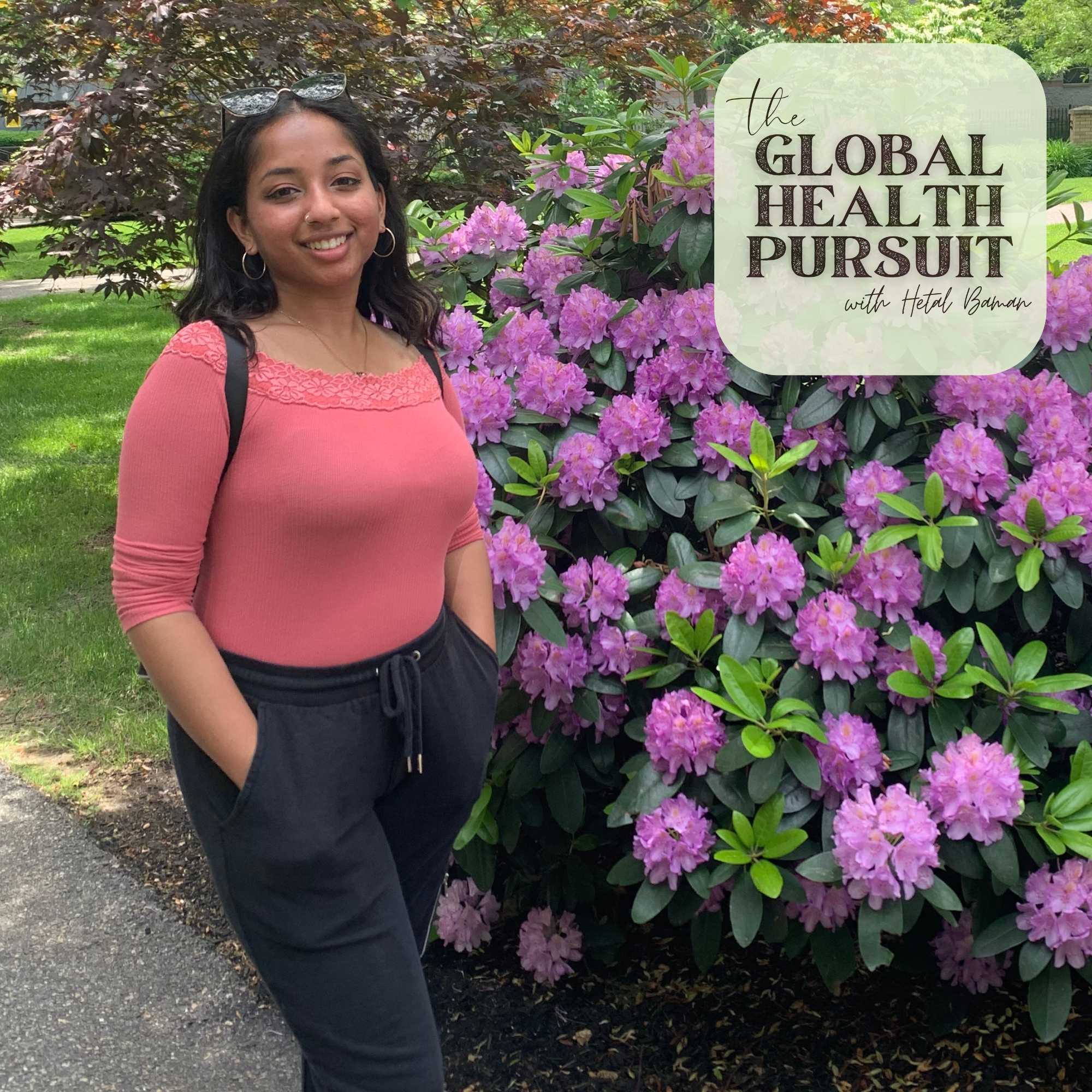6. My South Asian Parents Think Therapy Is a Scam... What Do I Do?
Subscribe and listen on Apple Podcasts, Spotify, Google Podcasts, or your favorite platform!
Have you ever tried to approach your parents about the prospect of going to therapy? Sometimes, our readiness to break generational cycles can look like a threat to our parents. Today, we're going to dive into an incredibly important topic that is often overlooked in the South Asian community - intergenerational trauma. I'm joined by Anjali Badrinath, a master's student of clinical mental health counseling at the College of New Jersey. Anjali went from being a pharmacy major to pursuing clinical mental health counseling and she’s a passionate advocate on a mission to normalize therapy in the South Asian community.
Speaking with Anjali, we realized how much we had in common as first generation with South Asian parents. Many of you who are listening may be first generation Americans. This can lead to something called intergenerational conflict, which is compounded with an intercultural struggle. It can get pretty messy when you identify with your family's cultural background but also want to embrace being an American. Oftentimes, South Asians are dissuaded from seeking therapy using something called the collectivist framework. But on the bright side, we are slowly but surely breaking the stigma of mental health conditions within the South Asian community.
In this Episode, We Cover:
Intergenerational conflict and collectivist framework: The segment discusses the intergenerational trauma and mental health struggles within the South Asian community, and how the collectivist framework dissuades South Asians from seeking therapy.
Career expectations and interests: Anjali Badrinath shares her personal story of how she pursued a career in mental health counseling despite her parents' expectations for her to become a pharmacist, and how her parents had other interests that they were not able to explore.
Breaking the stigma of mental health conditions: The conversation touches on how the stigma surrounding mental health conditions within the South Asian community is slowly being broken through sources like social media, films, TV, and the growing number of therapists like Anjali who are passionate about understanding and serving the South Asian population.
Isolation and Mental Health Struggles: Anjali Badrinath shares her personal experience of isolation and mental health struggles during her pharmacy studies, and how mental health was not prioritized in the South Asian community.
Stigma Surrounding Mental Health in South Asian Community: The lack of South Asian therapists in the US is discussed, as well as the stigma surrounding mental health conditions within the community.
Collectivist Framework and Bicultural Identity: The collectivist framework and bicultural identity of South Asian immigrants in the US is explored, and how it can lead to a sense of isolation and difficulty in coping with intergenerational trauma.
Generational Trauma: The conversation touches on how multi-generational trauma affects the South Asian community and how it gets passed on from one generation to another.
Mental Health Stigma: The stigma surrounding mental health conditions within the South Asian community is discussed, and how it contributes to the high cases of depression and anxiety.
Betrayal and Guilt: The pressure to adhere to cultural standards and the sense of betrayal and guilt that comes with deviating from them is discussed, along with the difficulty of finding a balance between individuality and collectivism.
Collectivist mindset and mental health stigma: The speakers discuss the pressure to conform to family expectations and the stigma surrounding mental health within the South Asian community.
Media representation and mental health resources: The speakers talk about the positive impact of media representation of South Asians and the availability of mental health resources, but also acknowledge the need for more progress in this area.
Career aspirations and advocacy: Anjali Badrinath shares her plans for the future, including advocacy work and working with the South Asian population in her career as a mental health counselor.
Who is Anjali Badrinath?
Anjali is currently a master's student at The College of New Jersey in the Clinical Mental Health Counseling program and will be graduating in May 2023. Much of her research and advocacy work is with South Asian mental health topics but she hopes to apply her experience and gain a better understanding of multicultural counseling concepts in order to work with first and second generation clients who have immigrated to America.
Links, Mentions, and Resources -
Dear Zindagi movie
Never Have I Ever TV show



